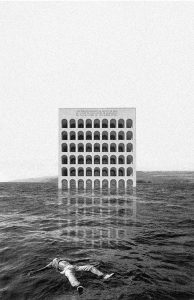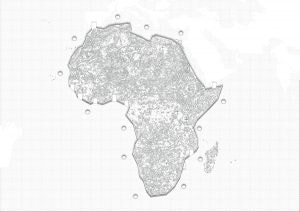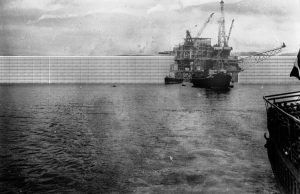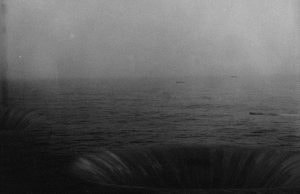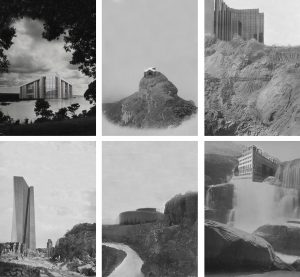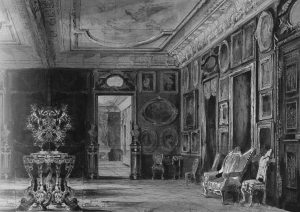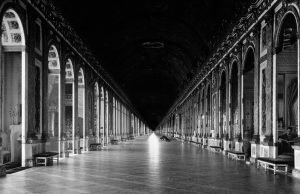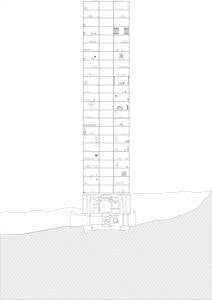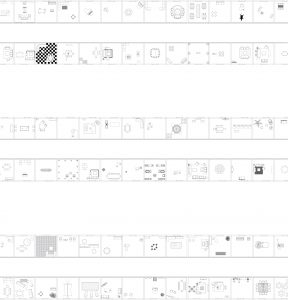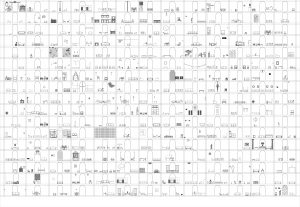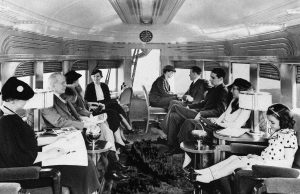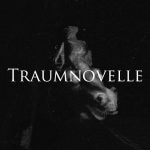Wealthy North Europeans who purchase houses and retire in the warmer Southern European or North African countries echo the same economic, demographic and social principles as snowbird migration to the Sunbelt states in the U.S., as well as the enclosed ClubMed holiday and the privileged expat jobs and lifestyles in developing countries. Westerners seem to cling to the belief that the whole world is available to them, to be consumed and transformed to fit their needs. The relationship between the African and European continents epitomizes this neo-colonial relationship.
This piece of work explores from a cynical standpoint how the western world may save itself from global warming and the rise of sea levels by applying these anchored notions. The African continent being less subject to sea rises than Europe, it is physically, ideologically and symbolically appropriated by Europe in an attempt by the latter to save itself – and, hence, to save humankind from its own errors. The materialized border becomes both a barrier, preserving the interior from the exterior, as well as an inhabited frontier, relocating 500 million Europeans along the reinforced African coastline. Hence, both nature and people are equally extracted and resistant to one another.
The proposal aims at questioning Western-centric points of view when dealing with global environmental and social issues, and the inevitable neo-colonialist attitudes that follow. Its scope is not limited to Africa, but may be expanded to the global south as well as to the labouring classes within Western countries themselves. It also questions the reliance on technology and capital in resolving crisis, and humankind’s obsolete dependence on the barrier as a form of preservation.
Chère vieille Europe, cher vieux continent, putain autoritaire,
aristocrate et libertaire, bourgeoise et ouvrière,
pourpre et pomponnée de grands siècles et colosses titubants.
Regarde tes épaules voûtées, pas moyen d’épousseter d’un seul geste,
d’un seul, les vieilles pellicules, les peaux mortes d’hier et tabula rasa…
D’ici on pourrait croire à de la pourriture noble et en suspension.
il flotte encore dans l’air de cette odeur de soufre. Sale vieille Europe,
celle qui entre deux guerres et même encore pendant caressait pour son bien
le ventre des pays de ses lointains ailleurs et la bite à la main
arrosait de son sperme les sexes autochtones.
Noir Désir, “L’Europe” [1]
I
As a child, thoughts of the ocean called to mind nothing more than blissful play. Mellow waters, the taste of salt, scurrying life and adventures in the sand dunes. Today the ocean rhymes with violence, fear and destruction. Homes flooded and lives lost. Cities and forests engulfed in dark powerful waters. Vast expanses of emptiness where there once were valleys, villages and roads. Yet today, as yesterday, the thin line of the horizon remains full of promise. As the sea levels surely rose, people united. Our brightest minds convened and devised, and found there was still hope for our great civilization. The yellow stars of our banner were no longer being submerged by the navy backdrop, they were rising from it. A land, beyond the horizon, bears our faith. Its high coastlines have maintained most of its land intact while we have lost entire countries, entire cultures. So close yet so far, it is a land our ancestors knew well, yet our wise leaders warrant none of their mistakes will be made again. I am to leave tonight. The voyage is long, and bears no return. I am bringing only the most valuable of my possessions in a small leather bag. Nothing else is needed.
II
Favourable currents have made our faring good. We travelled far out at sea, the promised land only a haze, barely within reach of my eyesight. Yet today as we turned towards the land, the immense glory of our venture was revealed to me. The shoreline has been entirely secured as far as the eye can see. Dark powerful waves merely lap at the base of our new city. And what a city to behold! It is like no other. It stands tall and strong, like a fatherly figure. Yet it is elegant and subtle in its proportions, as our architects have learnt from our illustrious ancestors. The city promises everything we have fought for. For all of us awaits, at last: a home! Safety! Prosperity! Culture! We have not only saved ourselves, we have bettered ourselves!
III
There were lengthy discussions regarding what to bring. The books and art, of course, were scanned and securely stored. The languages were recorded and saved, as was the music. The cultures were studied and documented, from lifestyles to objects to history to folklore. Excavation sites were hastily examined and their findings inventoried for future research. All living species were registered, documented and their genetic information archived. I don’t think there ever was, in the history of humankind, a greater collection of knowledge and culture. It makes the most ambitious museums seem childish and scopophilic, the largest library bland and inefficient and even the internet appears frivolous and empty. We have finally accomplished the mythical Mundaneum. Like seeds waiting to be sown, this precious heritage is stored in monumental data centres far out at sea. They delve deep under the ocean, which keeps the colossal machines cool and safe.
IV
But what of places? What of buildings, cities and landscapes? Of course we could not bring them all. The landscapes were disregarded first. They were photographed and measured in great haste, as were the charming villages and hamlets. Although most agreed that all monuments could not be uprooted and transported, no one seemed to agree on which to select. There were heated disputes amongst those elected to represent us, who consistently argued in favour of the heritage of their regional provenance. In protest, some buildings were sabotaged. Dissension grew, reminding us of our divergent cultures and ancestors. At that point, one visionary politician made an unexpected proposal. We should leave them all, and bring only the ones that unite us. Although some were horrified, the logic was impeccable. There were six, representing justice, law and democracy. One by one, they were dug out of the earth and, ever so cautiously, they were loaded onto the largest sea carriers. Great cranes were assembled, barely touching the ground, to transport the chosen buildings to their selected locations, which had been assiduously readied.
V
After two weeks in the temporary facilities, I have been assigned a room. It is rather high up, exhibiting a splendid view of a tropical landscape. I have been told that the sea views are even more dramatic, however, I am glad to be away from the cursed waters. I have begun fitting out my room. I have settled on a bourgeois mansion style. I have acquired a golden Louis console table, a Lalique vase adorned with naked nymphs and a heavy weave tapestry depicting a garden. However I must refrain myself from printing too many items at once from the comprehensive data bank, or else I fear I shall over do it. I have asked what happens if I am unhappy with one of the items, and was told that, of course, it would be recycled. I imagine people strolling by in the hallway, glancing in at my delicate furnishings, but I see only a reflection of my interior. Later on I must show up in the hallway myself, and be inspired by my neighbour’s compositions as well.
VI
My first month here has been exhilarating. My room is now fully furnished in the most graceful style, but I am beginning to consider an entirely new decor. Perhaps Viennese Secession, or Eileen Gray, or Greek temple… The possibilities are infinite. I now know most of the people on my floor, with whom I spend all of my social time. In afternoons we chat, we play, we stroll in our hallway, we visit each other in our private rooms. We converse, we laugh, we exhibit our findings and share our most recent discoveries. One of my friends is currently visiting the virtual Moorish buildings of southern Spain and Portugal. Another is researching German philosophy, though I suspect not reading the originals. I must find myself a passion as well yet the possibilities are so endless I can hardly decide. In evenings we drink, we dance, we show off. We dress up, paint our faces and bodies, each time more extravagantly than the last. The only limit is our imagination and our cheerful rivalry is an endless stimulator. I feel that we may be young forever.
VII
I am beginning to understand more of how our new city works, and it is a marvel. Our engineers truly deserve the homage of every citizen. Under our homes, strong turbines harvest energy from the tides. Robotized algaculture yields raw materials for 3D printing and food in many varied forms. Anyone who wishes to can experiment new recipes, new techniques, new flavours, new textures. And indeed, our menus are diverse, exquisite and delicate. Every activity is automated, from harvesting to food production to garbage management to machine repair to surgery to item production. For the first time in the history of civilization, no human is subject to work. Of course, many people do want to work. They engage in meaningful activities of their choice: some teach, some write, some spend time with children, some try their hand at art, and some design more complex machines to serve us. As we settle in and migrations come to an end, the huge structures that transported the buildings are no longer needed. Rather than dismantling them, they are being converted into a suspended railway network. I myself decided to help out for a while with the works, to pay my debt to society.
VIII
Our shuttle is to cross the continent from east to west. We boarded with great enthusiasm, for this was the first time that we were to witness the wonders of our newfound promised land. For the first few hours, we exclaimed at its beauty and drank to the glory of our common venture and its manifest success. As we now tire of each other’s company and have no private quarters to retire to, we are becoming more quiet. I did not think to bring something to occupy my mind, so I have been watching the scenery as it unfolds below us. Vast expanses of grassy plains become thick forests, then dry bushland. A huge lake is framed by craggy mountains. A sluggish river slithers amongst lolling hills. A feeling of unease suddenly forms in my throat. I have been observing the landscape for several hours now, and have seen nothing but wilderness. The pillars of the suspended structure are the only traces of anthropological presence. I reflect: were there not cities here? were there not people, cultures? Terror grows in my gut as I wonder: what is it exactly that we have saved?
Traumnovelle is a militant faction founded by three Belgian architects: Léone Drapeaud, Manuel León Fanjul and Johnny Leya. Traumnovelle uses architecture and fiction as analytical, critical and subversive tools. Like a magnifying mirror, it emphasizes contemporary crisis and dissects their resolutions. Alternately cynical, enthusiastic and defiant, it is an advocate of critical thinking in architecture.

